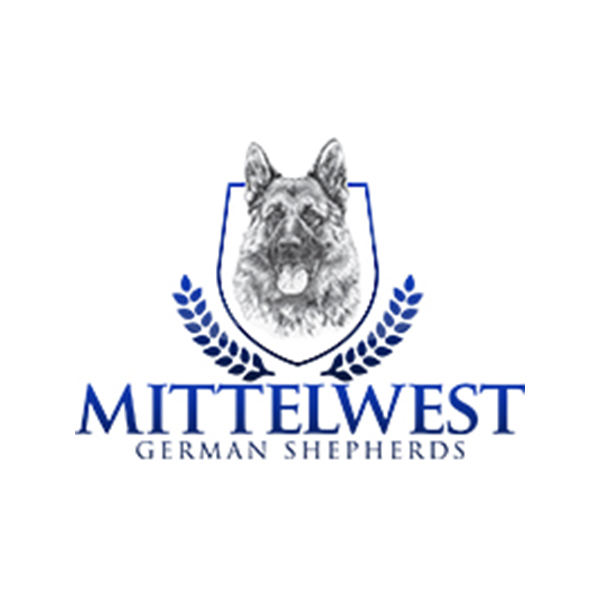TL;DR:
Ask breeders clear questions about health testing, socialization, living conditions, and support before bringing a German Shepherd puppy home. These conversations help you identify potential red flags and make informed choices.
Bringing a German Shepherd puppy into your home is a major decision. These dogs are highly intelligent and loyal, but they need a solid foundation to thrive in a family environment.
Finding a reputable breeder is critical. The right questions can reveal whether a breeder focuses on health, temperament, and ethical breeding practices. Don’t skip this step—it sets the tone for your dog’s life.

Can I Meet The Puppy’s Parents?
Meeting the puppy’s parents provides a preview of what your dog may become, both physically and behaviorally. Their demeanor and health are often strong indicators of the puppy’s potential future.
If the parents are friendly, calm, and move well, it says a great deal about your pup. Aggression, extreme fear, or physical issues might suggest trouble. Always trust what you see more than what the breeder is telling you.
Reputable breeders will gladly introduce you to both parents, or at the very least, the mother. Avoid breeders who refuse to comply with this request or make excuses. Transparency is the first sign of quality.
What Health Testing Did The Parents Undergo?
Health testing isn’t just a bonus—it’s critical. German Shepherds are prone to hip and elbow dysplasia, degenerative myelopathy, and other genetic disorders. Testing helps reduce the risk of passing those conditions along.
Ask for proof. Reputable breeders typically hold OFA or PennHIP certifications and often utilize DNA panels. If the breeder brushes you off with vague statements like “they’re healthy,” you’re not dealing with a professional.
These documents are your only assurance that your puppy has a solid genetic start. Don’t just ask—verify. Responsible breeders are proud to share their health screening records with you.
How Are The Puppies Socialized?
Socialization shapes your puppy’s personality for life. Those first few weeks are vital for teaching dogs how to respond to their environment. Poor socialization now can mean fear and aggression later.
Ask what kind of experiences the puppies have had. Are they handled daily? Exposed to kids, household sounds, and new environments? Early exposure helps build confidence and emotional resilience.
Breeders who go the extra mile will explain how they structure those experiences. Look for intentional practices, not just “they’re around people.” Socializing isn’t luck—it’s built with care and repetition.
What Is The Puppy’s Vaccination & Deworming Schedule?
Disease prevention starts before your puppy ever walks through your door. Ask what vaccinations the puppy has received and when the next ones are due. You need this information for your vet.
Breeders should provide written health records, not just verbal assurances. It should include dates for vaccinations, deworming, and any veterinary visits or treatments administered so far.
Without this baseline, your vet’s job becomes guesswork. Don’t assume it’s been done—ask. A breeder who tracks this carefully is likely just as thorough in every other area of their program.
Do You Offer A Health Guarantee?
Health guarantees show that the breeder stands behind their puppies. These typically cover certain genetic conditions for a year or more, depending on the breeder’s policies and the dog’s lineage.
Ask to read the full terms. What’s covered? What’s the claim process? Is there a replacement or refund policy in place? Knowing these details now can prevent misunderstandings later on.
If a breeder doesn’t offer any health guarantee, that’s a red flag. It suggests they don’t want to be responsible for issues that might arise. The best breeders won’t hesitate to offer one.
Can I See Where You Raise The Puppies?
A dog’s first environment leaves a lasting impression. Puppies raised in clean, spacious, and enriching surroundings tend to be more curious, healthy, and well-adjusted.
Ask to visit or see videos of where the puppies spend most of their time. Is it a clean home setting or a crowded kennel? Do they have access to various forms of stimulation, such as toys and human interaction?
If the area looks chaotic, unclean, or hidden from view, take it as a warning. A responsible breeder will proudly show you where their puppies grow and play.
What Is The Puppy’s Diet?
Good food means good health. Ask what brand and type of food the puppies eat. Changing their diet too abruptly can upset their stomach and make their transition more difficult.
Some breeders provide a sample or feeding schedule to help you transition smoothly. That extra step shows they care about the puppy’s adjustment to their new life.
Additionally, verify that the food meets the nutritional standards for puppies. You want to build on the foundation your breeder has set, not backtrack with subpar feeding choices.
Do You Provide References From Previous Buyers?
You can measure a breeder’s reputation by the people they’ve already helped. Ask for references. Call them. Ask if they’d go through the same breeder again.
People with positive experiences love to share them. If someone is still happy with their dog years later, that says a lot about how the dog was bred and raised.
Avoid breeders who resist giving references or say they “don’t do that.” Transparency builds trust, and it is non-negotiable when choosing who raises your future family member.
What Support Do You Offer After The Sale?
The first few weeks after bringing a puppy home can be challenging. You’ll have questions, and a good breeder will be there to answer them—even after the sale.
Ask if they offer training advice, health tips, or even just phone support. Some breeders go above and beyond, providing written guides, video calls, or community groups for new owners.
Support doesn’t have to mean 24/7 availability—it just means the breeder cares enough not to vanish. The best ones know their job doesn’t end when the puppy leaves.
Are You Involved In Breed Clubs Or Organizations?
Membership in breed clubs often indicates higher breeding standards. It demonstrates the breeder is involved in improving and learning about the breed, not just selling puppies for profit.
Ask which organizations they belong to. It could be national clubs, local German Shepherd groups, or working dog associations. Involvement often comes with mentorship, education, and oversight.
If they’re not involved in any networks, ask why. It might not be a dealbreaker, but it’s worth knowing whether your breeder operates in a vacuum or within a community of accountability.
Additional Considerations When Choosing a Breeder
Choosing the right breeder takes more than gut instinct. Ask the hard questions. Dig deep. What you uncover now can save you years of frustration or heartbreak down the line.
How Long Have You Been Breeding German Shepherds?
Experience matters. Years of breeding provide insight you can’t fake—about temperament, health, and training potential. Ask how long they’ve specialized in German Shepherds, not just “dogs” in general.
Breeders who’ve been in the game a long time tend to develop better instincts for pairing dogs, spotting early warning signs, and offering solid advice to new owners.
Longevity also means consistency. If the breeder has been with the business successfully for years, you can trust they’re not just riding a trend or looking to make a quick buck.
Do You Participate In Dog Shows Or Competitions?
Shows and trials demonstrate a breeder’s commitment to excellence. They don’t just breed for looks or temperament but put their dogs through structured, competitive evaluation.
Ask if the breeder’s dogs hold titles in obedience, protection work, or conformation. That speaks volumes about both the dogs and the effort the breeder invests in them.
It also suggests a higher level of selective breeding, particularly in terms of temperament and trainability, both of which are critical traits in German Shepherds.
What Is Your Policy On Returning Puppies?
Life happens. Responsible breeders have clear return policies in case you can no longer care for the dog. It shows they’re committed to the lifelong welfare of their puppies.
Ask if they’ll take the dog back, whether it’s weeks or even years down the line. A no-questions-asked return policy is a mark of a breeder who truly cares.
Avoid anyone who says, “Once it’s sold, it’s yours.” That approach leaves too many dogs in shelters, revealing a great deal about the breeder’s priorities and values.
Making the right call starts with asking the right questions. Digging into these areas can reveal a breeder’s true priorities—and help you bring home a German Shepherd that fits.
Now, let’s learn why Mittelwest stands out as a GSD breeder.
Mittelwest Stands Out As A German Shepherd Breeder
 At Mittelwest, we take breeding seriously. Our German Shepherds aren’t just dogs—they’re family. Every puppy we raise reflects our passion for health, temperament, and responsible breeding practices.
At Mittelwest, we take breeding seriously. Our German Shepherds aren’t just dogs—they’re family. Every puppy we raise reflects our passion for health, temperament, and responsible breeding practices.
We don’t cut corners. Our dogs undergo certified health screenings, live in clean environments, and receive round-the-clock care and attention. These help us produce confident, well-adjusted puppies ready to thrive with their new families.
We believe in being open and supportive. We invite you to meet the parents, review pedigrees, and tour our facility. From first contact to post-adoption questions, we’re always here to help.
Choosing a breeder isn’t just a transaction—it’s a long-term decision. Ask clear questions and look for honest answers. Trust is key from the first conversation to the final handshake.
With the right breeder, you’re not just getting a puppy. You’re starting a journey with a healthy, well-prepared companion loved long before they met you. At Mittelwest, we are with you every step of the way.

Julie Martinez is a German Shepherd breeder and the owner of Mittelwest German Shepherds in Wonder Lake, Illinois. She breeds German Shepherd Dogs under the “vom Mittelwest” kennel name and is listed as a breeder on the AKC Marketplace. Through her breeding program, Julie focuses on German-bred bloodlines and works with owners who value structure, temperament, and real-world working ability. She is also involved in local working-dog training through the Wonder Lake Schutzhund Club, where Mittelwest supports hands-on development such as tracking and club training.













